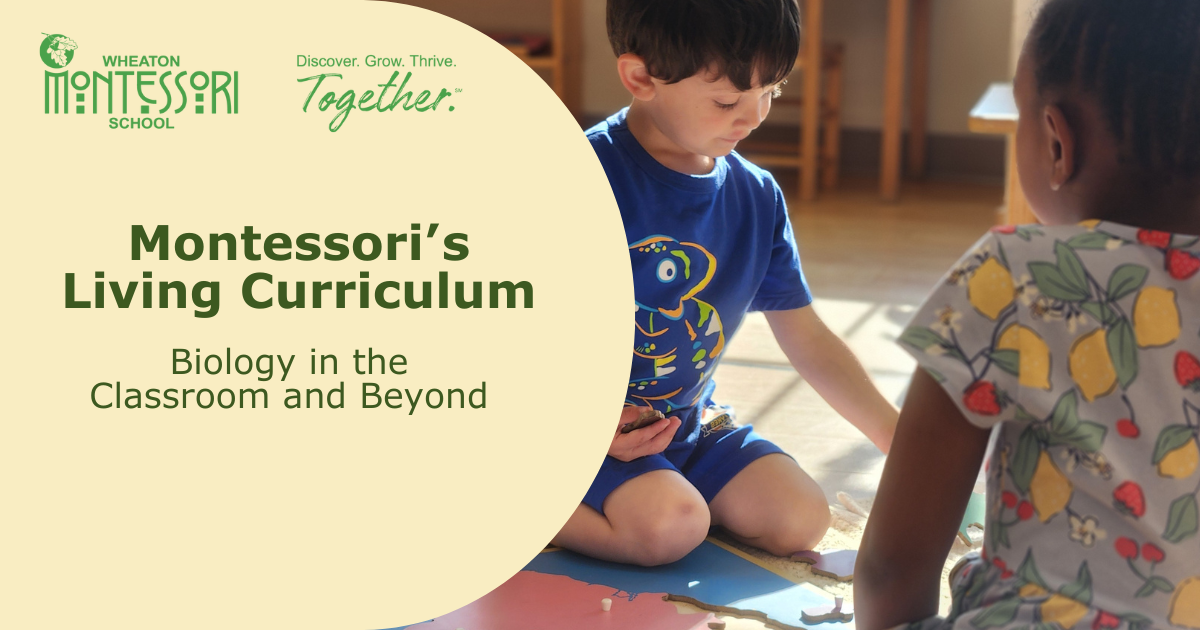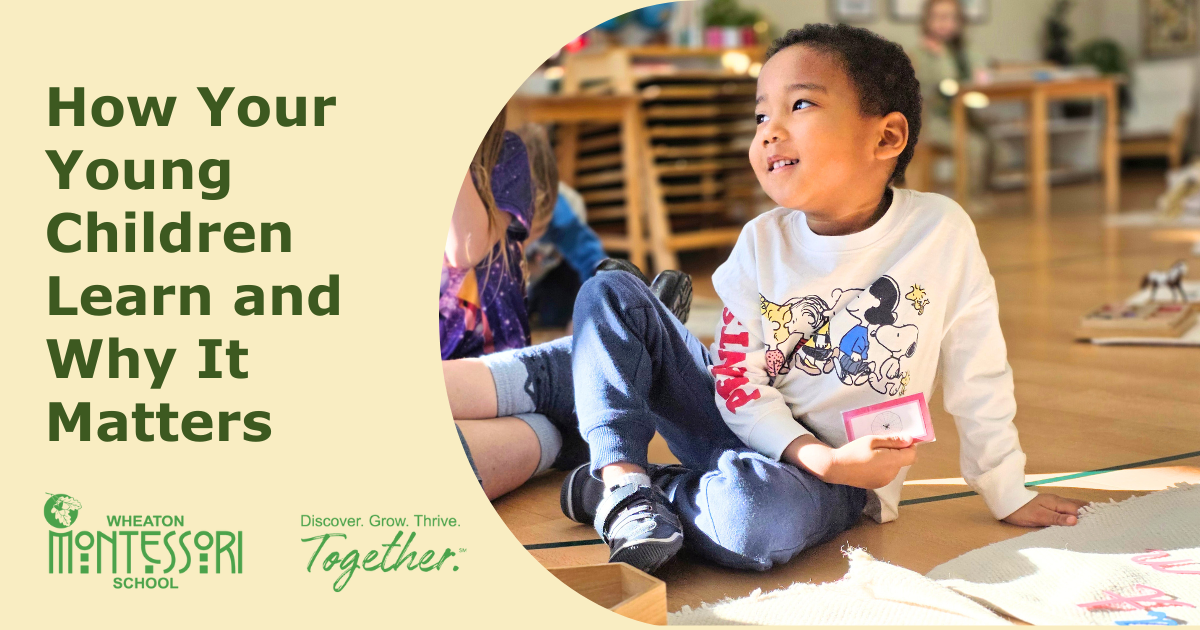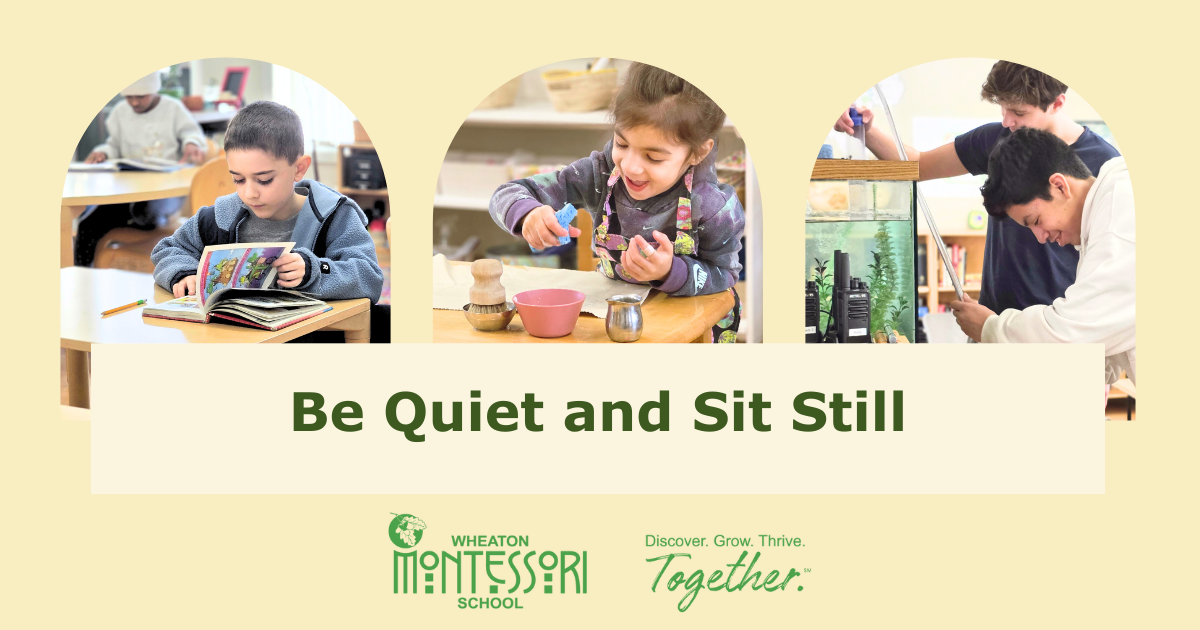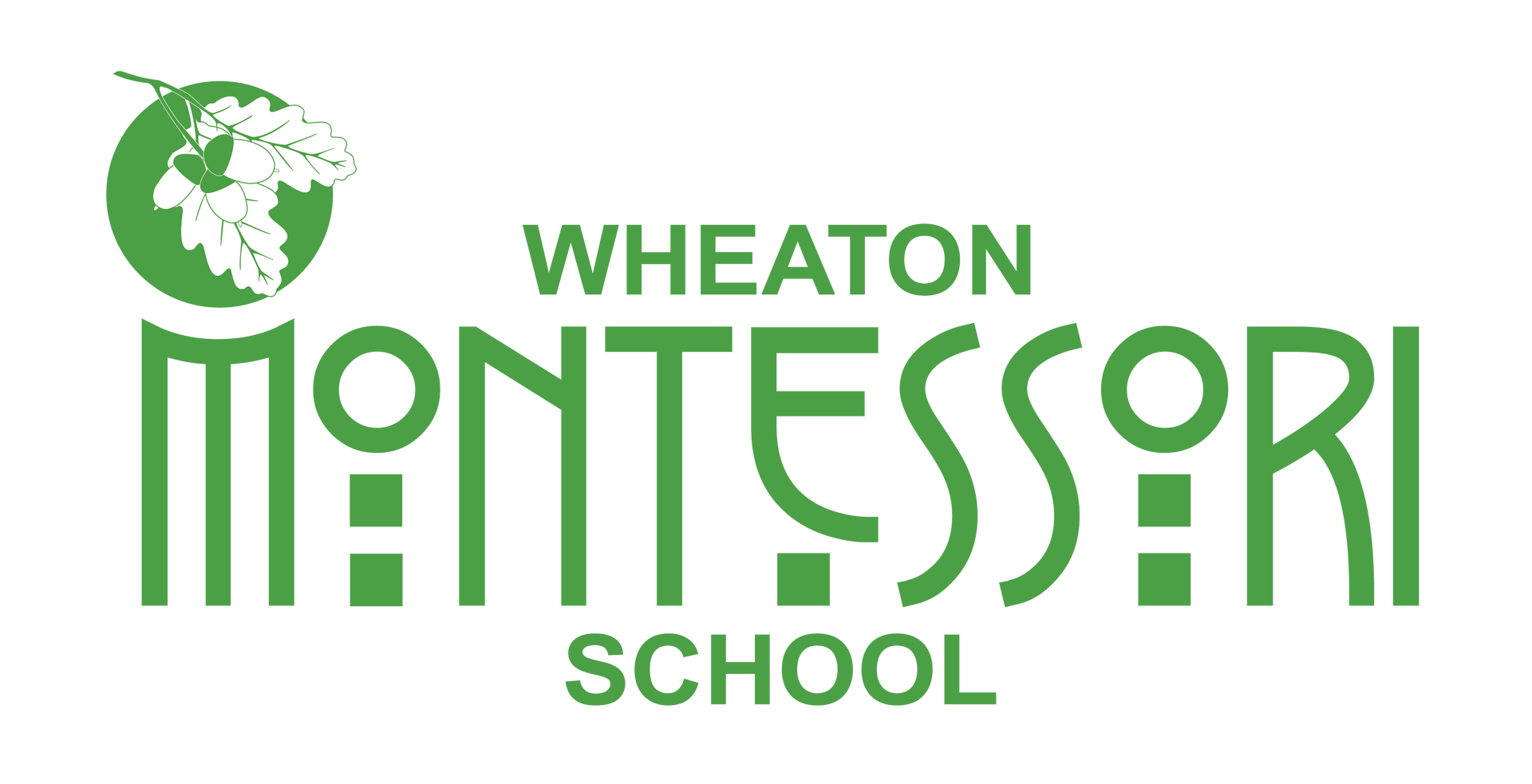
What is biology? At its root, the word comes from the Greek bios, meaning "life," and logos, meaning "word" or "reason." In short, biology is the study of life. At Wheaton Montessori School, however, biology is more than a science subject—it’s a gateway to wonder, connection, and understanding our place in the larger story of life on Earth.
A Living Subject in a Living Curriculum
Dr. Maria Montessori saw biology as essential for a curriculum designed to help children in 1st- 6th grades see how everything is interconnected. In this context, biology is not just about memorizing facts. It’s about discovering how plants, animals, water, minerals, and even the air work together in a grand collaboration. Through this lens, we can discover how each species has an important contribution—a unique role in sustaining life.
Plants, for example, draw minerals and water from the soil, but they also protect that soil from erosion and help purify the air. Animals depend on plants for food and, in turn, help pollinate, fertilize, and spread seeds. Each element takes what it needs and gives something back. At Wheaton Montessori School, children explore these ideas deeply, not just as scientific facts, but as part of a moral and ecological awareness inside the classrooms, in our conservation wetland, and on the playgrounds.
The Importance of Real Experiences
Children are imaginative and curious. During the elementary grades learners are also developing a strong sense of right and wrong. They want to understand how things work and why they matter. That’s why biology at Wheaton Montessori School isn’t taught from a textbook—it’s brought to life through real experiments, lived experiences and thoughtful exploration.
We begin biology lessons with real specimens. An unusual seed, a unique leaf, or a well-tended plant offers more opportunities for engagement and connection than a picture ever could. Children are encouraged to observe, touch, ask questions, and form hypotheses. We may use sketches and charts to aid understanding, but hands-on exploration always comes first.
Children dissect parts of a flower, experiment with how different leaves respond to light, or observe how water travels through a stem. Along the way, they learn the functional anatomy of plants and animals, explore systems of classification, and begin to understand adaptation and evolution.
Moral Considerations in Science
Because elementary-aged children are developing a sense of right and wrong, we take care to present biology with sensitivity and respect. We don’t cut living plants carelessly or keep animals for the sake of experimentation. Instead, we invite questions: Is it right to dissect a flower? What happens when we keep a bird in a cage? How does using pesticides affect bees and flowers?
These questions encourage children to develop empathy, a sense of stewardship, and a respect for life. It’s not just about learning how living things function—it’s about understanding our responsibility within the web of life.
A Dual Environment: Classroom and Nature
One of the most important aspects of Wheaton Montessori School is that learning science not just occurs inside a four-walled classroom, but also in the natural world. Children study parts of a plant in class and go outside to identify those parts on campus. They may observe a classroom pet or the school bees coming to planter boxes, then learn about insect behavior and classification. This duality deepens understanding and builds connection.
When in Kodaikanal, India, Dr. Montessori experienced how elementary children learned by exploring hills, forests, and fields. Wheaton Montessori School is fortunate to be surrounded by nature. And near your home, biology is that it’s everywhere–a patch of grass, a few fallen leaves, or the cracks in a sidewalk where something green is growing.
How Families Can Support a Love of Biology and Nature
As parents and caregivers, we are our children’s most important guide to the natural world. And the good news is, we don’t need to be biology experts to nurture a deep love of life sciences. Here are some simple ways we can provide support:
- Go outside often. Whether it’s a walk around the neighborhood, a hike in the woods, or just time in the backyard, give children plenty of opportunities to observe and wonder.
- Make collections. Children love collecting things—leaves, rocks, feathers, shells. Encourage this instinct and use it as a way to ask questions and spark further research.
- Model curiosity. If your child asks why some plants grow in the shade or why certain animals come out at night, don’t feel pressured to have the answer. Say, “I wonder that too. Let’s find out together.”
- Create a nature journal. Encourage children to draw, label, and write about what they see in nature. This can be as formal or informal as they like. The goal is to create a habit of observation.
- Ask big questions. Children love the extraordinary. Ask them what they think about camouflage, desert survival, or why birds migrate. Their imagination and reasoning will shine.
- Use your interests. If you love gardening, birdwatching, or hiking, share that with the children in your life. Even your casual observations can spark their questions and investigations.
From Biology to Ecology
As our students children grow in their biological studies, they naturally move toward ecology—the study of how all living and nonliving parts of the world interact. This final synthesis reinforces their understanding that they are part of something bigger, something intricate and beautiful.
Ultimately, biology at Wheaton Montessori School is about more than life sciences—it’s about living fully, attentively, and respectfully in the world. With a nurturing classroom, a natural world to explore, and the guidance of engaged teachers and their assistants, our children can grow up with a profound sense of connection, wonder, and care for the Earth.
Schedule a time to visit the school to experience how we cultivate a love for living things and an interconnected way of thinking about the world.
Prospective families with toddlers and children under 4 are encouraged to sign up for a school tour the advantages of our Primary Program, which lays the essential foundation for our Elementary and Adolescent Community Programs*. Prospective families who are enrolled in the 2025-2026 School Year are welcome to sign up for Wheaton Montessori School summer camps.
Preschool enrollment for summer and fall 2025 is ongoing and depends on availability for eligible early childhood students. There are extremely limited spots available for new children aged 4 and under for the upcoming summer and fall of 2025.
* Individual school tours for kindergarten through 9th grade are not available, and the waitlist remains closed for the 2025-2026 School Year. The only exception is considered for students transferring from AMI-accredited Montessori schools that have maintained continuous attendance.


